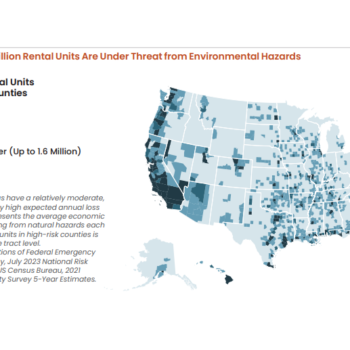|
|
Amazon (AMZN.O), the e-commerce giant, has made another groundbreaking stride in its commitment to sustainability by introducing 300 Rivian electric delivery vans on German roads, which will be in operation in the Munich, Berlin, and Dusseldorf regions.
This move marks a significant milestone in the electrification of its transportation network and aligns with Amazon’s ambitious Climate Pledge, aiming to achieve net-zero carbon emissions by 2040.
Amazon’s initiative to roll out Rivian electric vans began in the United States in 2022. As of 2023, the company operates more than 3,000 electric vans across 500 cities and regions. The company aims to expand its custom electric delivery fleet to 100,000 Rivian vehicles globally by 2030.
Unlike their US counterparts, however, the custom electric delivery vehicles from Rivian for the European market are shorter and thinner. That is in response to European cities’ unique architectural and urban planning challenges.
The dense, often medieval city layouts of Europe, characterized by narrow streets and limited parking spaces, require a different approach to vehicle design compared to the open roads and spacious parking lots common in many US cities.
These vans’ tailored design ensures operational efficiency and emphasizes the companies’ commitment to sustainable logistics practices worldwide. This flexibility demonstrates a keen understanding of local conditions, showcasing how environmental innovation can be thoughtfully integrated into diverse settings without compromising functionality or effectiveness.
Amazon’s partnership with Rivian, in which it holds a significant stake, underscores its commitment to sustainable logistics practices.
Rivian (RIVN.O), a U.S. electric vehicle (EV), is known for creating stylish electric vehicles equipped with an array of premium features uncommon to traditional trucks and SUVs. For instance, the R1T pickup truck and R1S SUV made a huge splash due to their ‘skateboard platform’ that allows for a flexible and spacious layout, significantly enhancing the vehicles’ functionality. This innovative design provides extra storage space where traditional vehicles would house the engine and drivetrain components, setting new standards for electric vehicle utility and performance.
By incorporating Rivian vans into its delivery fleet, Amazon reduces its carbon footprint and showcases the practicality and efficiency of electric logistics solutions to the broader industry.
Furthermore, this collaboration displays confidence in the potential for electric vehicles to transform the automotive landscape, particularly in sectors where heavy-duty transportation options are essential. Rivian’s electric trucks and SUVs offer a blend of sustainability, performance, and innovation that positions them as attractive alternatives to traditional gasoline-powered vehicles, pointing towards a future where sustainable transportation is crucial in combating climate change.
According to Reuters, Amazon has committed over 1 billion euros ($1.1 billion) to electrify its fleet in Europe. Germany, in particular, will benefit from a substantial portion of this investment, with 400 million euros allocated to accelerate the adoption of electric delivery vehicles.
Electrification of Delivery Vehicles: A Growing Industry Trend
Amazon is one of many companies moving towards the complete electrification of its delivery vehicles. In recent years, there has been a broader trend within the industry to reduce their carbon footprint and embrace sustainable practices, with other major players also transitioning towards electric delivery fleets.
Companies like UPS, FedEx, and DHL have announced plans to electrify their delivery vehicles, signaling a collective effort toward decarbonizing the transportation sector.
UPS, for instance, placed an order for 10,000 electric vehicles from British EV-maker Arrival in 2020, showcasing a significant investment in sustainable logistics infrastructure.
Meanwhile, FedEx added 150 electric vehicles (EVs) from Brightdrop, a tech startup owned by General Motors (GM), advancing the company’s fleet electrification aspirations.
This broader industry trend of transitioning to electric delivery can make a massive difference in reducing emissions while demonstrating the commitment to environmental stewardship and innovation in the transportation sector.
Reasons Behind the Switch to Vehicle Electrification

Image Source: https://unsplash.com/photos/green-and-white-number-2-HjV_hEECgcM
Multiple factors fuel the momentum behind the switch to electric delivery vans, each underscoring the urgency and benefits of embracing electric vehicles (EVs) across industries. The growing concern over environmental sustainability, intensifying regulatory pressures, and significant advancements in EV technology form a compelling case for businesses to innovate their fleets toward cleaner alternatives.
Environmental Sustainability
Environmental sustainability has become a critical issue as the impacts of climate change become more evident and urgent. Companies recognize that they play a vital role in mitigating these effects, with transportation significantly contributing to global carbon emissions. Transitioning to electric vehicles offers a clear pathway to reducing the emissions coming from delivery vehicles on the road, aligning companies’ operations with broader environmental goals, and demonstrating corporate responsibility.
Regulatory Pressures
Regulatory pressures further motivate this shift. Governments worldwide are implementing stricter emissions standards and setting ambitious targets combatting climate change, pushing companies toward sustainable practices. In some cases, incentives for adopting electric vehicles or penalties for high-emissions fleets encourage businesses to move more swiftly towards electrification.
EV Technology Advancements
Advancements in EV technology have made electric delivery vans more viable than ever. Increased battery life, improved charging infrastructure, greater efficiency, and a suite of innovative safety features have addressed many early concerns about range and usability. Moreover, the total cost of ownership of EVs is decreasing as technology advances, making them an increasingly practical choice for businesses.
Sandra Roling, Head of Transport at Climate Group, observes that businesses view transitioning to EVs as essential to achieving net zero by 2030, which aligns with these developments. The shift towards EVs is not just an environmental consideration but also a strategic imperative for companies committed to sustainability. It allows them to create ease on the road, future-proof their operations against changing regulations, contribute positively to the fight against climate change, and meet stakeholder expectations for eco-friendly practices.
Your Weekly Sustainability News!
By subscribing you agree to our Privacy Policy
How Consumers Can Benefit from the Electrification of Delivery Vans and Trucks
Consumers stand to benefit significantly from the electrification of delivery vans and trucks, reflecting not just an environmental stride forward but also improvements in service quality, cost efficiencies, and community health.
Here’s how consumers stand to gain from this transition:
-
- Reduced Air and Noise Pollution: Electric vehicles (EVs) produce zero tailpipe emissions, contributing significantly less air pollution than traditional gasoline or diesel-powered vehicles. Communities, especially those in urban areas with high delivery traffic, will experience improved air quality. EVs are also much quieter, reducing noise pollution. Such outcomes translate to more livable, peaceful neighborhoods with cleaner air, benefiting residents’ health and well-being.
-
- Enhanced Delivery Services: Adopting electric delivery vehicles can lead to more efficient routing and potentially faster delivery times. Electric vehicles can leverage advanced technology for optimized route planning and tracking, providing consumers with more accurate delivery windows and potentially quicker service due to less downtime required for maintenance commonly associated with traditional vehicles.
-
- Lower Operational Costs: The operational costs of running EVs are generally lower than those for conventional vehicles, primarily due to fewer moving parts that require maintenance and the lower electricity cost than fossil fuels. Over time, these savings can be passed on to consumers through lower shipping fees or the cost of goods.
-
- Support for Renewable Energy Sources: As more companies integrate EVs into their fleets and invest in renewable energy sources to charge them, there’s a cumulative investment in greener infrastructure. Consumers who prioritize sustainability can take comfort in supporting businesses that align with their values, fostering a market where clean energy and sustainable practices are prioritized.
-
- Innovation and Economic Growth: The push towards electrification spurs innovation in the automotive and energy sectors, contributing to economic growth and job creation. As consumers support companies that invest in electric fleets, they indirectly contribute to a burgeoning market that fosters advancements in technologies, services, and products. This economic stimulation can lead to more consumer choices, competitive pricing, and improved technologies that enhance the overall consumer experience.
-
- Decreased Dependence on Fossil Fuels: By reducing reliance on gasoline and diesel for transportation, electrification decreases global demand for fossil fuels. This shift helps stabilize fuel prices over time, benefitting consumers by potentially reducing the cost of goods transported via these electric vehicles. In the long term, this can contribute to greater energy security and less volatility in fuel prices, offering consumers a more predictable economic environment.
-
- Positive Environmental Impact: When consumers support companies that utilize electric delivery vehicles, they participate in a collective action with a positive environmental impact. Knowing that their purchasing choices contribute to reducing carbon emissions and combating climate change can provide a sense of personal fulfillment and responsibility toward environmental stewardship. This cultural shift towards valuing sustainable practices in the marketplace can encourage more businesses to adopt green initiatives, creating a virtuous cycle of ecological consciousness.
-
- Enhanced Corporate Responsibility: The electrification of fleets becomes a visible symbol of corporate responsibility as companies respond to consumer demand for more sustainable practices. Consumers benefit from increased transparency and the reassurance that their chosen brands align with their values regarding sustainability and ethical business practices. This alignment can strengthen brand loyalty and consumer trust, enhancing the consumer-company relationship.
-
- Healthier Communities: The shift to electric delivery vehicles has a broader societal benefit by contributing to healthier communities. Reduced emissions mean fewer health issues related to air pollution, such as respiratory problems, heart conditions, and allergies. This translates into potential long-term healthcare savings and improved quality of life for consumers, particularly in densely populated areas where delivery traffic is frequent.
Beyond Electrification: Advancing Sustainable Delivery Practices
While the electrification of delivery vehicles marks a significant stride towards reducing emissions, companies can further enhance sustainability by embracing other alternative strategies.
-
- Renewable Energy Integration: Incorporating renewable energy solutions, such as solar panels and wind turbines, to power charging stations offers a dual benefit of reducing environmental impact and promoting clean energy usage. By harnessing renewable sources to charge electric delivery vehicles, companies can minimize their reliance on fossil fuels and accelerate the transition to a low-carbon transportation infrastructure.
-
- Delivery Route Optimization: Optimizing delivery routes through advanced navigation systems and data analytics holds immense potential for minimizing fuel consumption and emissions, not to mention helping delivery drivers save time. By leveraging real-time data on traffic patterns, weather conditions, and delivery demand, companies can streamline routes, reduce idle time, and optimize vehicle utilization. This reduces operational costs and mitigates environmental impact by minimizing unnecessary fuel consumption and emissions.
-
- Adoption of Hydrogen Fuel Cell Technology: Investing in hydrogen fuel cell technology presents another promising avenue for reducing carbon emissions in the transportation sector, particularly for long-haul delivery trucks. Hydrogen fuel cells offer a clean and efficient alternative to traditional combustion engines, emitting only water vapor as a byproduct. Companies can explore partnerships with automakers and energy providers to develop hydrogen fueling infrastructure and deploy hydrogen-powered vehicles in their delivery fleets, further diversifying their sustainable transportation portfolio.
-
- Modal Shifts: Promoting modal shifts towards rail and waterway transportation for freight can significantly reduce greenhouse gas emissions associated with long-distance cargo transport. By leveraging existing rail and waterway infrastructure for bulk transport, companies can minimize the environmental impact of transporting goods over long distances. When combined with last-mile electric delivery solutions, modal shifts offer a holistic approach to reducing emissions throughout the supply chain, from production to delivery.
By embracing a holistic approach to sustainability beyond electrification, companies can achieve greater efficiency and environmental stewardship across their delivery operations. From renewable energy integration to route optimization and modal shifts, each strategy contributes to a more sustainable and resilient transportation ecosystem, aligning with global efforts to combat climate change and achieve net-zero carbon emissions by 2040.
Conclusion
Amazon’s debut of Rivian electric vans on German roads signifies a monumental leap towards a more sustainable future for delivery fleets worldwide. The move toward the electrification of delivery vehicles on the road today not only reduces emissions but also fosters innovation and efficiency in the transportation sector.
As companies continue to invest in electric vehicle technology and sustainable logistics practices, consumers can expect cleaner, quieter, and more cost-effective delivery services. By embracing electrification and exploring complementary sustainability initiatives, companies can contribute to a greener, more resilient transportation ecosystem for future generations.












